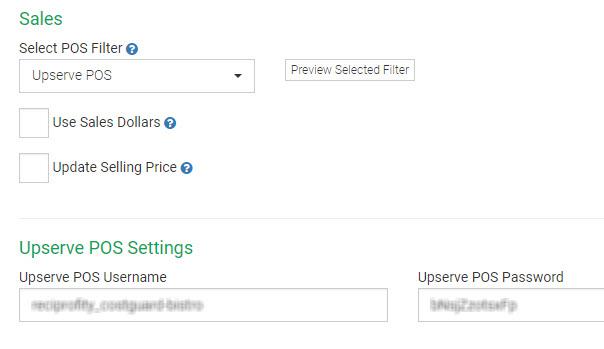In a world where brand reputation can be built or shattered within moments, the intricate fabric of consumer trust has never been more precious. One often overlooked yet crucial aspect of this tapestry is the adherence to zip code protection rules—a legal framework designed to guard local businesses against unfair competition and protect community identities. As globalization and digital commerce dissolve geographical boundaries, understanding and respecting these regulations becomes vital for brands aiming to maintain integrity in their marketing efforts. This article delves into the significance of zip code protection, exploring how safeguarding these local sanctuaries not only fosters fair competition but also enriches the connection between brands and the communities they serve. Join us as we navigate the landscape of brand integrity in an era where respect for local regulations is not just a legal obligation, but a cornerstone of sustainable business practice.
Understanding Zip Code Protection Rules and Their Impact on Brand Integrity
Zip code protection rules serve as a critical safeguarding mechanism for brands, dictating how and where their products can be marketed and sold. These regulations ensure that businesses maintain a consistent presence within specified geographical boundaries, reducing the risk of dilution or misrepresentation of their brand identity. By adhering to these rules, companies can cultivate a loyal customer base while maximizing their growth potential in carefully designated markets. Ignoring these guidelines can lead to unauthorized distribution and price discrepancies that not only confuse consumers but also compromise the brand’s image.
Moreover, the impact of zip code protection extends beyond mere compliance; it plays a significant role in fostering **brand loyalty** and **consumer trust**. When customers recognize a brand that consistently delivers quality products within their locale, they are more likely to endorse and advocate for it. The nuances of local market dynamics underscore the importance of understanding this regulatory environment, which might include:
- Territorial Exclusivity: Protecting designated sales regions to enhance brand reputation.
- Market Integrity: Preserving a brand’s value by preventing unauthorized sales.
- Consumer Protection: Ensuring that customers receive the expected level of service and product authenticity.
Strategies for Compliance and Best Practices to Uphold Consumer Trust
To effectively navigate the complexities of zip code protection rules, businesses should adopt a multifaceted approach that prioritizes transparency and accountability. Establishing a robust compliance framework involves continuous training for employees on applicable laws and regulations. Consider implementing the following best practices:
- Regular Audits: Conduct periodic reviews of your marketing strategies to ensure compliance with zip code regulations.
- Clear Policies: Create straightforward policies that articulate how consumer data is handled and protected.
- Open Communication: Foster an environment where customers feel comfortable expressing their concerns about data usage.
Moreover, transparency can significantly enhance consumer trust. Companies should proactively communicate how they utilize consumer data while ensuring protection measures are in place. Effective strategies to maintain consumer confidence include:
| Strategy | Description |
|---|---|
| Data Minimization | Limit the collection of consumer data to only what is necessary for business purposes. |
| Consumer Consent | Obtain explicit consent from consumers before collecting or sharing their data. |
| Privacy Notices | Provide clear and concise privacy notices that inform consumers about data usage. |
Navigating Challenges: Enhancing Brand Reputation Through Responsible Marketing
In the ever-evolving landscape of marketing, one critical aspect frequently overlooked is the adherence to zip code protection rules. These regulations were established to prevent unsolicited marketing efforts from invading the privacy of individuals within specific areas. Failing to respect these rules can not only result in hefty fines but can also tarnish a brand’s reputation. By embracing compliance, brands can ensure they foster a trustworthy image and strengthen their connection with consumers. Here are a few key points to consider when navigating this essential aspect of marketing:
- Stay Informed: Regularly update your knowledge of local and federal marketing regulations to avoid inadvertent violations.
- Engage Responsibly: Develop strategies that prioritize consent and respect for consumer privacy.
- Promote Transparency: Clearly communicate data practices and how consumer information will be used to build trust.
Moreover, addressing these regulations can lead to the adoption of innovative marketing techniques that respect consumer preferences. Utilizing geo-targeting in a way that complies with regulations allows brands to deliver personalized content while maintaining consumer trust. Below is a simple breakdown of common zip code regulations:
| Regulation | Description |
|---|---|
| Informed Consent | Consumers must give explicit permission for marketers to use their zip code data. |
| Data Use Limitations | Zip code data should only be used for legitimate marketing purposes. |
| Disclosure Requirements | Brands must disclose how zip code information will be utilized and shared. |
Insights and Conclusions
safeguarding brand integrity transcends mere compliance with zip code protection rules; it’s about fostering trust and respect in a competitive marketplace. As we navigate the intricate waters of brand management, understanding and adhering to these regulations not only helps brands maintain their reputation but also solidifies their commitment to ethical practices. By championing these principles, businesses not only protect their interests but also contribute to a fairer landscape for all stakeholders involved. As we move forward, let us champion transparency and responsibility, ensuring that every zip code is a fortress of authenticity and respect for the bounds of brand identity. After all, in a world where every detail counts, safeguarding one’s brand is not just a smart strategy; it’s a pledge to uphold the values that resonate beyond borders.
